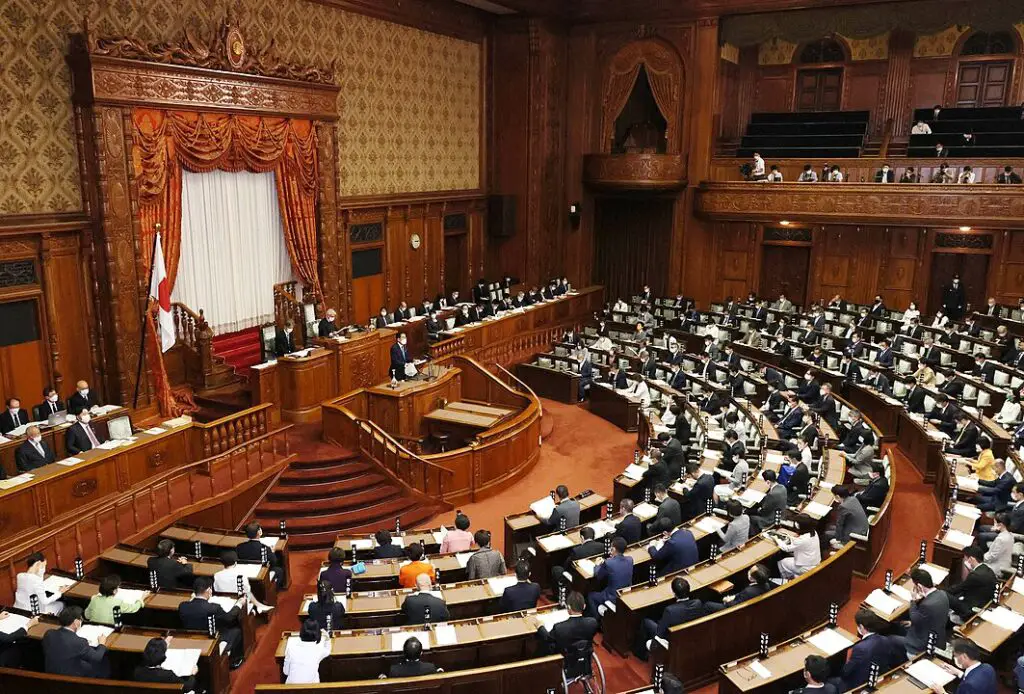Japan’s age of consent has long been a topic of discussion, especially among international audiences. For years, it stood at just 13—one of the lowest in the world. However, in 2023, Japan enacted legal reforms raising the age of consent to 16. These changes not only align Japan more closely with global standards, but they also reflect a growing commitment to protecting children and addressing sexual abuse. Understanding these updates is essential for anyone interested in Japan’s legal and cultural evolution.
What Is the Age of Consent in Japan?
Japan recently made significant updates to its age of consent laws, a move that has drawn attention both domestically and internationally. For over a century, the age of consent in Japan was one of the lowest globally, set at just 13 years old. In 2023, comprehensive legal reforms were introduced to raise it to 16. These changes have aimed not only to align Japan’s laws with international norms but also to address concerns related to sexual abuse and child protection.

Recent Legal Changes
In June 2023, Japan enacted a pivotal amendment to its legal framework, raising the age of consent from 13 to 16. This update marks the first shift in this law in over 100 years. Beyond raising the legal age, the reform also broadened the definition of sexual offenses under law. New measures were introduced to ensure better judicial clarity and protection for victims of sexual assault.
The reforms now criminalize any sexual activity with individuals under 16 unless both participants are close in age, which is designed to account for consensual relationships among teens. This balanced approach ensures that laws are both protective and realistic in scenarios involving young people. These changes were part of a broader package of reforms aimed at modernizing outdated laws concerning sexual crimes.
For more on the reforms, visit Japan Enacts Laws to Reform Sex Offense Charges or The Guardian’s Coverage.
Old vs. New Law
Under the old law, the age of consent in Japan was 13, one of the lowest legally recognized ages among developed nations. This meant that individuals 13 and older were legally deemed capable of consenting to sexual activity. However, additional regional ordinances often imposed stricter limitations at a local level, though these were not part of the national Penal Code.
The 2023 reforms introduce a standardized national legal age of consent, setting it at 16. Here are the key differences:
- Previous Law: Allowed for consent from ages 13 and up, with exceptions dependent on local jurisdiction.
- Current Law: Forbids sexual activity with anyone under 16, unless both parties are close in age and consent is mutual.
This new system also includes clearer guidelines to address ambiguous legal interpretations in the past, particularly around what constitutes consent and coercion in cases of sexual misconduct. With these changes, Japan seeks not only to protect minors but also to ensure fairer trials when prosecuting cases of sexual assault. For a comprehensive look into the comparison, check out Japan Raises Age of Sexual Consent.

These updates reflect a broader societal shift toward safeguarding children and ensuring justice for survivors of abuse. Whether you’re a resident, traveler, or just someone fascinated by Japanese legal reforms, understanding these changes is key to appreciating the country’s approach to modernizing its societal norms.
Why Was the Age of Consent Changed?
The decision to raise the age of consent in Japan wasn’t made in isolation. It emerged from years of growing public frustration, legal debates, and societal shifts. These catalysts revealed deep flaws in the old system, emphasizing the urgent need for reform.
Public Outcry and Catalysts
For years, critics of Japan’s age of consent laws voiced their concerns, but significant change only gained momentum after several catalysts came into play. A series of high-profile cases shed light on the inadequacies of the outdated laws, shocking the public and sparking discussions around how young people were left vulnerable to predators. These cases pushed many individuals and organizations to demand immediate reforms.
Public protests played a key role, as people came together to fight for better protections, especially for minors. Social advocacy groups worked tirelessly, amplifying survivor voices and challenging cultural taboos around discussing sexual violence. The growing global attention to Japan’s legal norms also added pressure, as its low age of consent became increasingly identified as a glaring anomaly when compared to international standards.
For example, media outlets such as The Los Angeles Times reported on global backlash against 13 being the legal age of consent, making it harder for Japan to avoid addressing the issue. The combined pressure from both local and international communities created a tipping point.
Gaps in Old Laws
The previous legislation, which set the age of consent at 13, had multiple shortcomings that left victims unprotected. One major gap was its failure to account for power dynamics, coercion, or cases where victims were intoxicated. This limited scope made it incredibly difficult to secure convictions against offenders unless the victim could prove explicit violence or physical restraint during the act.
Furthermore, the law didn’t consider how different circumstances might hinder a minor’s ability to truly consent. For instance:
- Coercion: Many cases involved older individuals exploiting their power over minors.
- Substance Use: If a victim was intoxicated, the old regulations often fell short in recognizing their inability to consent.
- Judicial Interpretation: Courts struggled to apply the rigid laws in nuanced scenarios, often resulting in offenders walking free.
According to The Washington Post, these gaps highlighted the need for modernized laws that better reflect Japan’s current societal values. By raising the legal age to 16 and redefining the scope of consent to include situations of coercion or incapacitation, the 2023 reforms aim to close these dangerous loopholes and provide more robust protections for potential victims.
The shortcomings of the old system served as a harsh reminder that protecting minors requires laws that are proactive, not reactive.
Expanded Definition of Rape
In 2023, Japan introduced groundbreaking legal reforms that redefine and broaden the scope of rape under its Penal Code. This adjustment was urgently needed to address loopholes in the law and align legal standards with modern understandings of consent. The changes complement the updated age of consent laws while emphasizing victim protection and reducing judicial ambiguity.
Including Non-Consensual Acts
One of the most notable changes was transitioning from a requirement to prove force or resistance to a clearer focus on consent. Previously, victims had to demonstrate that they were physically overpowered or resisted the perpetrator for a case to be considered rape. This put an unfair burden on victims and allowed many offenders to evade legal consequences.
Under the updated law, the emphasis has shifted to non-consensual acts, where the lack of mutual agreement is the core issue. This change recognizes that coercion can occur in many forms, not just physical violence. Situations involving threats, manipulation, or emotional pressure are now considered, giving victims a voice in scenarios where explicit force was absent. This transformation ensures the legal landscape accounts for different types of assaults and modern complexities surrounding consent. For further insights on this shift, check out Japan Changes Its Rape Laws to Require Consent.
The reform simplifies prosecution processes, making it harder for offenders to exploit technicalities. By focusing on whether there was clear, mutual agreement, the law reflects a deeper understanding of how power dynamics often play a role in sexual violence. Survivors and advocates view this as a step toward prioritizing justice over outdated legal formalities.

Stronger Protections Against Assault
Japan’s 2023 reforms didn’t just redefine rape—they also introduced tougher penalties and new protective measures. Minimum sentences for rape were restructured, signaling the government’s commitment to discouraging such crimes and holding offenders accountable. The law now mandates harsher punishments for those found guilty, with a minimum prison term of five years. This ensures that serious violations are met with appropriately severe consequences.
Additionally, the reforms address situations that frequently went unpunished under previous laws. They now include:
- Substance-Influenced Vulnerability: If a victim is incapacitated by alcohol or drugs, it is presumed they cannot give consent.
- Abuse of Authority: Penalizing cases where the offender exploits their power, such as in professional or familial relationships.
- Psychological Coercion: Recognizing emotional manipulation as equally damaging as physical intimidation.
These protections aim to reduce the chances of perpetrators escaping conviction due to legal gray areas. For survivors, this represents a significant step in ensuring their experiences are validated and their attackers are prosecuted. You can learn more about these changes by visiting Japan Enacts Laws to Reform Sex Offense Charges.
Together, these enhanced protections are a powerful statement from the Japanese government. By closing gaps in its legal structure, Japan is taking action to safeguard victims, deter future crimes, and modernize its societal values.
Introduction of New Offenses
Japan’s 2023 legal reforms introduced a host of changes not only to its age of consent but also in defining and penalizing new criminal offenses. These updates reflect a determined effort to modernize outdated laws, address societal concerns, and ensure the safety of vulnerable individuals. Here’s a closer look at the two key additions.
Criminalizing Upskirting and Voyeurism
In a significant step forward, Japan has criminalized acts of voyeurism and upskirting, setting strict penalties for offenders. These offenses, previously addressed under minor charges or local ordinances, are now explicitly prohibited under the national Penal Code. The updates aim to reinforce the dignity and privacy of individuals in an age where covert recording devices have become alarmingly common.
So, what are the penalties? Offenders caught taking photos or videos without consent can face up to three years in prison or a fine of up to 3 million yen (about $22,000 USD). This includes acts like upskirting or secretly recording individuals in private settings. Such penalties reflect how seriously Japan is treating these violations.
Voyeurism offenses, often referred to as “peeping Tom” acts, are no longer trivialized. The focus is on safeguarding victims from exploitation, harassment, and shame caused by such invasive behaviors. These changes send a clear message: personal boundaries are not negotiable.
For added context, these laws now align Japan with countries actively fighting similar crimes, ensuring that perpetrators face justice and cannot exploit legal loopholes. For those living in a tech-driven society, where devices keep shrinking but data risks expand, these regulations couldn’t have arrived sooner.
Provisions for Grooming and Coercion
Another groundbreaking inclusion in the 2023 reforms is the criminalization of grooming and coercion-related activities targeting individuals under 16. Grooming is the act of building trust or manipulating a minor for exploitative purposes, often involving coercion or deceit. Until now, Japan lacked the explicit legal tools to prosecute these behaviors effectively.
Under the revisions, engaging in grooming has become a punishable offense with penalties depending on the level of harm caused. Adults attempting to meet children after disguising predatory intentions can now face imprisonment, heavy fines, or both. The law defines grooming as any intentionally manipulative or calculated approach with the purpose of exploitation.
Furthermore, coercive tactics such as intimidation or financial pressure aimed at obtaining consent for sexual acts are severely penalized. These may include:
- Threatening consequences if a minor refuses to comply.
- Offering money or gifts to persuade vulnerable individuals.
- Exerting emotional or psychological control for personal gain.
The government’s action emphasizes that silence or implied agreement obtained through force or manipulation is no longer consent. This legal leap aims to root out predatory behavior before it escalates into physical abuse.
For advocates and victims, these shifts hold immense significance. They challenge offenders earlier in their approach, offering a preventative shield rather than waiting for harm to occur. To dive deeper into the specifics, check out the Asahi Shimbun article on new grooming laws.
By addressing these criminal acts comprehensively, Japan positions itself as an evolving society eager to protect its younger generation against manipulation and abuse. Whether it’s banning invasive voyeurism or cracking down on grooming, these statutes are a testament to progress and accountability.
Impact of the New Laws
The legal changes to Japan’s age of consent have sparked widespread discussions across social, legal, and cultural channels. These reforms were not implemented in a vacuum—they’re already transforming how the public, law enforcement, and the judiciary approach issues of consent and sexual violence.
Societal Impacts: Public Perception and Awareness Campaigns
The public response to Japan raising the age of consent from 13 to 16 has been overwhelmingly positive, but it’s also opened the door for critical conversations about sexual education and safeguarding minors. Many individuals have expressed relief that Japan has finally caught up with international standards, viewing the change as overdue and reflective of the country’s evolving values.
However, with the new law comes a significant need for awareness campaigns. Social organizations and NGOs have ramped up efforts to educate communities about what the reforms entail. Campaigns targeting young people and their parents now emphasize critical topics such as recognizing coercion, understanding consent, and spotting grooming behaviors. Platforms like Zenbird Media highlight the importance of bringing these discussions to schools and social hubs, where they can reach those most impacted.
Beyond awareness, these initiatives tackle cultural taboos regarding open conversations about sexual violence. Before the reforms, the subject was often under-discussed, leaving many in the dark about their rights. By reshaping these norms, the new laws push Japan to take a more proactive stance in protecting minors from exploitation and abuse.
How are these campaigns carried out? Through:
- Workshops in schools and universities.
- Social media campaigns promoting consent-focused education.
- Support networks offering assistance to survivors and families.
For older generations, the reforms can be confusing, especially since the prior law had been in place for over a century. By engaging all age groups, these efforts ensure the full societal ripple effect of these legal changes.
Judicial and Legal Considerations: Strengthening the Justice System
On the legal front, these reforms have given Japan’s judiciary new tools to deliver justice. Previously, Japan’s outdated framework placed many limitations on prosecuting offenders. Courts often failed to secure convictions unless victims could prove extreme violence or physical resistance. The changes not only raise the baseline age of consent but also simplify processes for legal interpretation.
The higher legal age creates a clearer standard for identifying illegal acts, reducing judicial ambiguity. For instance:
- Cases involving power imbalances, such as those between teachers and students, are now easier to prosecute.
- The close-in-age exception avoids criminalizing consensual relationships among teenagers, ensuring fair applications of the law.
The introduction of harsher penalties has also sent a strong message to would-be offenders. With a minimum prison sentence of five years for serious offenses, Japan’s courts now have more authority to deter crimes. These measures have been heralded as critical advancements in both punishment and prevention. For more legal insights, PBS NewsHour explores how these updates create better consistency across sexual crime cases.
Another key aspect is how the amendments prioritize victims. Ensuring that survivors don’t face the burden of proof for coercion or incapacitation represents a seismic shift in Japan’s judicial approach. By acknowledging and addressing the power dynamics at play, the law now creates more equitable trials that favor protecting victims rather than defending offenders.
With consistent enforcement, these changes could set a new precedent for other Asian countries with similarly outdated laws. For detailed legal analysis, the Kyodo News Article emphasizes how these legal updates further align Japan with international human rights standards.
Together, societal campaigns and judicial enhancements ensure that these new laws are not only enforceable but also understood and respected across the nation.
Criticism and Ongoing Debates
Raising the age of consent to 16 in Japan has received praise but also sparked substantial debate. While this reform addresses many gaps in child protection, concerns persist about those left out in the new framework, particularly LGBTQ+ individuals and calls for further improvements.
LGBTQ+ Advocacy Concerns
Japan’s law reforms have been criticized for failing to address LGBTQ+ communities’ unique vulnerabilities. Activists argue the updated legal framework, while progressive in some areas, doesn’t ensure full equality in protections. The country’s new LGBTQ+ awareness law, designed to foster understanding, has sparked disappointment for lacking legal teeth in preventing discrimination.
For example, no specific legal provisions prevent prejudices that disproportionately affect LGBTQ+ victims. Without targeted protections, LGBTQ+ individuals may hesitate to seek justice, compounded by possible bias in judicial and law enforcement systems.
Organizations such as Human Rights Watch have emphasized that equal protections are vital, not optional. The government must ensure future legislation explicitly covers all demographic groups. For more information, check out Time to Outlaw LGBTQ+ Discrimination in Japan.

Photo by Tima Miroshnichenko
Further Reforms Needed
Critics have also pointed out that this reform is only the beginning. Legal experts and activists are calling for broader definitions of sexual offenses and an extension of the statute of limitations on abuse cases. The current laws, while addressing age of consent, may still fall short in some areas of long-term victim care.
Here’s where additional reforms are needed:
- Broader Definitions of Sexual Violence: Expanding what constitutes abuse to cover non-physical coercion or emotional manipulation.
- Extended Statute of Limitations: Many victims face psychological barriers in reporting. Extending reporting deadlines allows more time for survivors to come forward.
- Education and Training: Comprehensive education for law enforcement and the public to ensure laws are applied fairly and effectively.
Advocates stress that better safeguards are crucial to prevent legal loopholes from enabling perpetrators to exploit victims further. Read more on gaps within the updated legal structures at PBS NewsHour.
Criticism often serves as a call to action, highlighting areas the reforms must still address to be fully effective. The inclusion of frameworks that protect all genders, sexualities, and age groups will be essential for long-term justice and equity.
Conclusion
Japan’s decision to raise its age of consent from 13 to 16 establishes a stronger legal foundation for protecting minors and addressing sexual violence. The 2023 reforms reflect a turning point, aligning Japan’s laws with international standards and modern understandings of consent.
While these changes are essential, they also open the door for broader societal discussions about education, victim support, and equal protections. For Japan and its global observers, these reforms symbolize both progress and a commitment to safeguarding vulnerable individuals.
What steps should other nations take to follow Japan’s lead in strengthening protections? Share your thoughts below.


